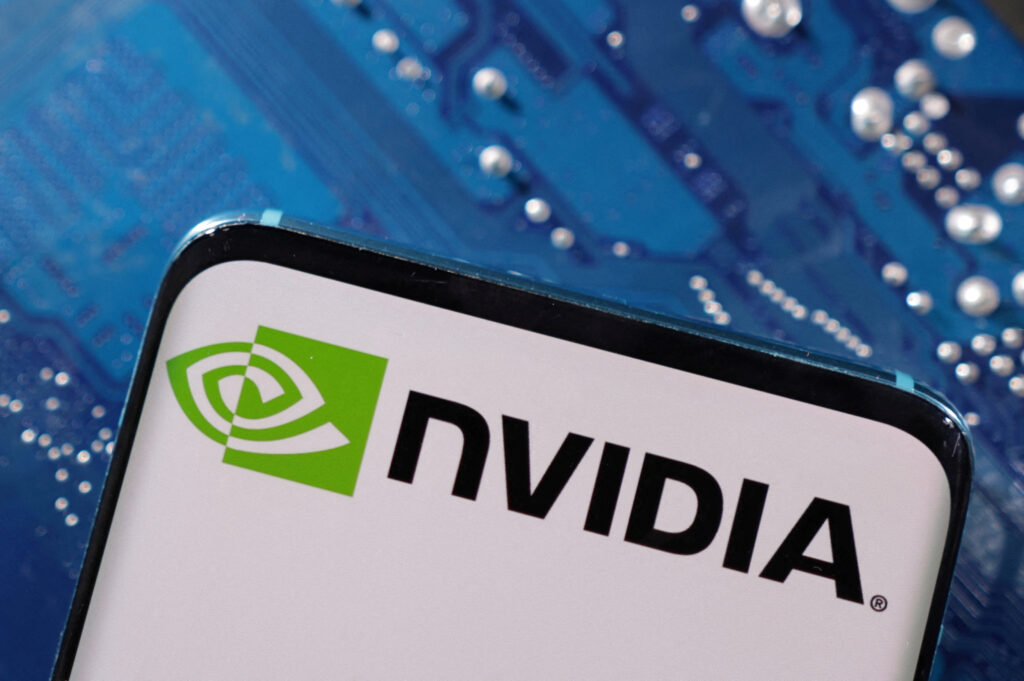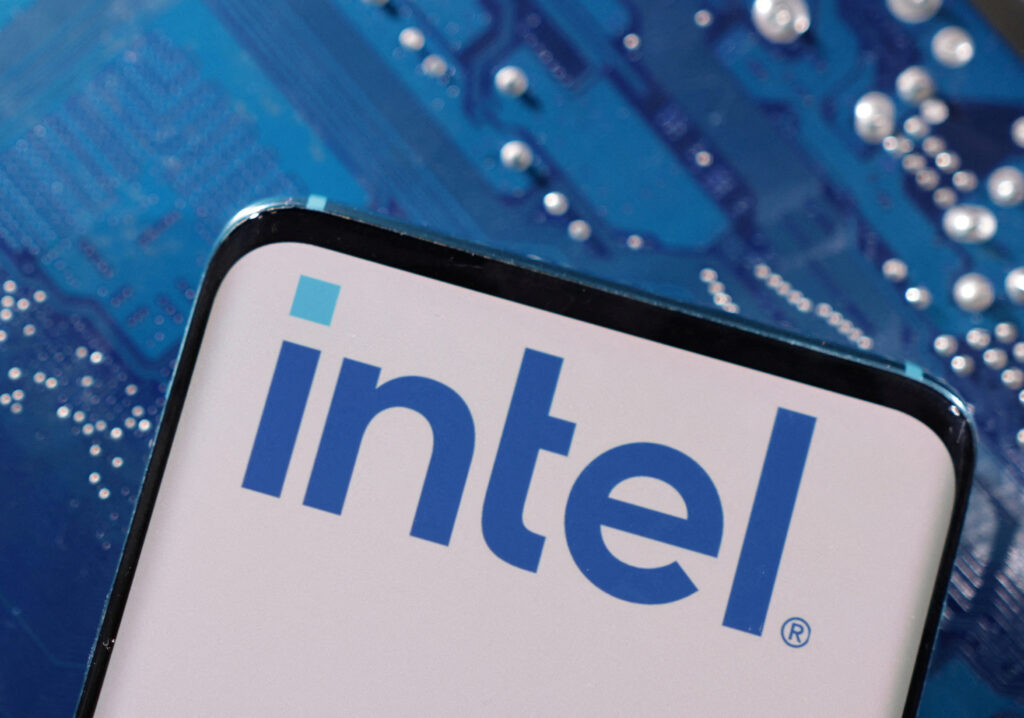The technology sector has been a driving force behind the stock market’s remarkable performance in 2024. Despite concerns over inflation and interest rate hikes, tech stocks have defied expectations, delivering impressive returns.
According to the Technology Select Sector SPDR Fund ETF (XLK), which tracks the tech sector’s performance, the fund has gained an astonishing 46% in the last year, outpacing the Russell 1000 Index by a significant margin.
This outperformance can be attributed to leading tech companies’ continued innovation and disruption. Nvidia Corp. (NVDA), a leader in the burgeoning artificial intelligence (AI) industry, reported a staggering 265% year-over-year revenue growth in February 2024, fueling investor enthusiasm for the AI boom.
Robust earnings reports from industry giants like Amazon and Microsoft have further bolstered the tech sector’s resilience, underscoring the importance of staying invested in this dynamic and forward-looking sector.
As the world embraces technological advancements, the best tech stocks are poised to lead the market, offering investors exciting growth opportunities in 2024 and beyond.
About Tech Stocks!
Technology stocks represent publicly traded shares of companies operating in the vast and ever-evolving technology sector. This sector encompasses diverse industries and offerings, from software and services to hardware and equipment and semiconductors and semiconductor equipment.
- Software and services are among the most significant categories within the tech sector. Companies in this domain develop and provide critical software solutions and services for various technology-based industries. These include cybersecurity, data analysis, cloud computing and storage, artificial intelligence, workflow and project management, video streaming and conferencing, and social media platforms. Well-known names like Microsoft, Salesforce, and Adobe fall into this category.
- Another significant segment is hardware and equipment. These companies manufacture and sell physical tech products that have become integral to our daily lives. This includes laptops, computers, printers, hard drives, AI home assistants, GPS devices, smart watches, phones, and appliances. Apple, with its iPhones and Macs, and Samsung, with its Galaxy line of smartphones and electronics, are prominent players in this space.
- The third significant category is semiconductors and semiconductor equipment. These companies create and manufacture the chips, circuits, and other physical components that power electronic devices such as phones, computers, and cars. Industry giants like NVIDIA, Intel, and Qualcomm drive innovation in artificial intelligence, data centers, and mobile devices.
Companies that span multiple categories further amplify the technology sector’s diversity. For instance, Amazon, primarily known as an e-commerce giant, also offers cloud computing services (software and services) and manufactures hardware like the Kindle and Echo devices (hardware and equipment).
Investors are drawn to top tech stocks due to the sector’s rapid growth, innovation, and disruption potential. Companies in this space are often at the forefront of technological advancements, creating new products and services that can revolutionize industries and reshape consumer behavior. However, the tech sector is also known for its volatility, as rapidly changing trends and intense competition can quickly impact a company’s fortunes.
As technology continues to permeate every aspect of our lives, the demand for cutting-edge solutions and products will likely fuel the growth of tech stocks, making this sector a compelling investment opportunity for those seeking to capitalize on the relentless march of innovation.
Why are Tech Stocks Down Today?
Tech stocks experienced a significant sell-off on Tuesday, March 5, 2024, as many factors weighed heavily on the sector. The sell-off was broad-based, with investors offloading large-cap tech giants like Tesla and Apple, contributing to the overall market decline. Here are the key reasons behind the tech sector’s downturn:
Concerns Over Apple’s iPhone Sales In China
- A report from Counterpoint Research revealed that iPhone sales in China fell by a staggering 24% year-over-year in the first six weeks of 2024.
- Apple faced increased competition from domestic rivals like Huawei, which gained popularity in the Chinese market.
- This news raised concerns about Apple’s performance in the crucial Chinese market, a key growth driver for the tech giant.
- Apple’s stock plunged nearly 3%, weighing heavily on the broader tech sector.
Tesla’s Challenges In China And Production Issues
- Tesla’s stock fell around 3% on Tuesday, extending its 7% decline from the previous day.
- February vehicle sales data showed a 19% year-over-year decline for Tesla in China, with the company selling 60,365 vehicles, its lowest monthly sales since December 2022.
- Additionally, Tesla’s European Gigafactory near Berlin halted production following a suspected arson attack, adding to the company’s woes.
Doubts Surrounding Alphabet’s Ai Capabilities
- On Tuesday, Alphabet (Google’s parent company) extended its decline, dropping about 1%.
- Investors continued questioning Alphabet’s position in the AI race following its botched rollout of Gemini, its AI chatbot.
- Concerns grew about Alphabet’s ability to keep up with competitors like Microsoft and OpenAI in the rapidly evolving AI landscape.
Profit-Taking And Rotation Out Of Tech Stocks
- Some strategists attributed the tech sell-off to investors taking profits after the recent rally.
- The tech-heavy Nasdaq Composite gained 56% in 2023, leading to concerns about potential overvaluation.
- Investors may rotate out of high-flying tech stocks in anticipation of upcoming economic data and Federal Reserve Chair Jerome Powell’s remarks.
Semiconductor Sector Weakness
- The Philadelphia semiconductor index underperformed the broader market, with chip rivals falling in sympathy.
- A Bloomberg News report suggested Advanced Micro Devices (AMD) faced obstacles in selling an AI chip tailored to the Chinese market due to Washington’s crackdown on advanced technology exports to Beijing.
- This added to the bearish sentiment surrounding the semiconductor sector.
Anticipation Of Economic Data And Fed Chair Powell’s Testimony
- Investors are closely watching for clues about interest rate policy and the Federal Reserve’s stance on monetary policy.
- Fed Chair Powell’s testimony before Congress on Wednesday and Thursday and the upcoming non-farm payrolls report on Friday are expected to provide insights into the central bank’s decision-making process.
- Uncertainty surrounding these events contributed to the risk-off sentiment, leading to a sell-off in riskier assets like tech stocks.
The combination of these factors, including concerns over specific tech giants’ performance, profit-taking, and anticipation of economic data and Fed commentary, created a perfect storm for Tuesday’s tech sector’s downturn.
The Top Tech Stocks!
Here are detailed overviews of top tech stocks with key information based on products/services, financial performance, and valuation/analyst ratings for 2024 and beyond.
Apple (AAPL)
A is a leading technology company known for its innovative hardware, software, and online services. Its key products include the iPhone, iPad, Mac, Apple Watch, and Apple TV. The company also offers digital content and services like the App Store, Apple Music, iCloud, and Apple Pay.
- Financial Performance And Growth Prospects: In 2024, Apple continued its stellar financial performance, driven by strong iPhone sales and growing services revenue. The company’s revenue is projected to surpass $400 billion, with a net profit margin of around 25%. Apple’s focus on emerging markets and the continued popularity of its ecosystem position it well for future growth.
- Valuation And Analyst Ratings: As of early 2024, Apple’s stock trades at a forward P/E ratio of around 25, which is considered reasonable given its growth prospects. Most analysts have a “buy” or “hold” rating on the stock, with an average target price of $220.
Microsoft (MSFT)
Microsoft is a multinational technology company that develops and sells computer software, consumer electronics, personal computers, and related services. Its key offerings include the Windows operating system, Office productivity suite, Azure cloud computing services, and Xbox gaming consoles.
- Financial Performance And Growth Prospects: Microsoft’s financial performance in 2024 has been impressive, with revenue expected to exceed $220 billion and net income surpassing $70 billion. The company’s cloud computing division, particularly Azure, has been a significant growth driver, and its acquisition of Activision Blizzard has bolstered its gaming segment.
- Valuation And Analyst Ratings: As of early 2024, Microsoft’s stock trades at a forward P/E ratio of around 30, which is considered reasonable given its growth prospects. Most analysts have a “buy” or “hold” rating on the stock, with an average target price of $360.
Tesla (TSLA)
Tesla is a leading electric vehicle (EV) manufacturer and clean energy company. Its key products include the Model S, Model X, Model 3, and Model Y electric cars, energy storage systems, and solar roof tiles.
- Financial Performance And Growth Prospects: Tesla’s financial performance in 2024 has been mixed, with strong demand for its vehicles and facing challenges such as production issues and supply chain constraints. The company’s revenue is projected to surpass $90 billion, with a net profit margin of around 10%. Tesla’s continued expansion into new markets and its focus on autonomous driving technology position it for future growth.
- Valuation And Analyst Ratings: As of early 2024, Tesla’s stock trades at a forward P/E ratio of around 60, considered high even for a growth stock. Analyst opinions are mixed, with some having a “buy” rating and others expressing concerns over the company’s valuation.
Intel (INTC)
Intel is a leading manufacturer of semiconductor chips and related technologies. Its key products include microprocessors, chipsets, system-on-a-chip (SoC) solutions, and other computing components for various devices and applications.
- Financial Performance And Growth Prospects: Intel’s financial performance in 2024 has been challenged by intense competition and delays in its next-generation chip development. The company’s revenue is projected to be around $70 billion, with a net profit margin of around 20%. Intel’s focus on regaining its technological lead and expanding into new markets, such as artificial intelligence (AI) and autonomous driving, could drive future growth.
- Valuation And Analyst Ratings: As of early 2024, Intel’s stock trades at a forward P/E ratio of around 15, which is reasonable for a mature technology company. Analyst opinions are mixed, with some recommending a “buy” based on the company’s potential turnaround, while others express concerns over its ability to regain market share.
PHUN (PHUN)
Phunware is a software company providing a mobile application cloud platform. Its key offerings include mobile engagement solutions, data management, and location-based services.
- Financial Performance And Growth Prospects: Phunware’s financial performance in recent years has been modest, with revenue in the tens of millions of dollars and ongoing net losses. The company’s growth prospects depend on acquiring and retaining customers for its mobile solutions and expanding into new markets.
- Valuation And Analyst Ratings: As of early 2024, Phunware’s stock trades at a relatively low valuation, with a market capitalization of around $100 million. However, analyst coverage and ratings for this small-cap company may be limited or unavailable.
NVIDIA (NVDA)
NVIDIA is a leading manufacturer of graphics processing units (GPUs) and system-on-a-chip (SoC) units for various computing applications. Its key products include GeForce GPUs for gaming, Quadro GPUs for professional visualization, and AI platforms like the NVIDIA DGX.
- Financial Performance And Growth Prospects: NVIDIA’s financial performance in 2024 has been exceptional, driven by strong demand for its GPUs in gaming, data centers, and AI applications. The company’s revenue is projected to surpass $40 billion, with a net profit margin of around 35%. NVIDIA’s continued innovation in GPU technology and its focus on emerging markets like autonomous vehicles and robotics position it well for future growth.
- Valuation And Analyst Ratings: As of early 2024, NVIDIA’s stock trades at a forward P/E ratio of around 40, which is considered reasonable given its growth prospects. Most analysts have a “buy” or “hold” rating on the stock, with an average target price of $350.
Meta Platforms Inc. (META)
Meta Platforms, formerly known as Facebook, is a leading social media and technology company. Its key products and services include the Facebook social networking platform, Instagram, WhatsApp, Messenger, and Oculus virtual reality (VR) devices.
- Financial Performance And Growth Prospects: Meta’s financial performance in 2024 has been resilient, with revenue projected to exceed $140 billion and a net profit margin of around 30%. The company’s focus on metaverse technologies, including virtual and augmented reality, and its continued dominance in social media advertising position it for future growth.
- Valuation And Analyst Ratings: As of early 2024, Meta’s stock trades at a forward P/E ratio of around 25, which is considered reasonable given its growth prospects. Most analysts have a “buy” or “hold” rating on the stock, with an average target price of $300.
Alphabet Inc. (GOOGL, GOOG)
Alphabet is the parent company of Google and a leading technology conglomerate. Its key products and services include the Google search engine, Android operating system, YouTube, Google Cloud Platform, and various hardware devices like the Pixel smartphones and Nest smart home products.
- Financial Performance And Growth Prospects: Alphabet’s financial performance in 2024 has been impressive, with revenue expected to surpass $350 billion and a net profit margin of around 25%. The company’s online advertising dominance and its growing cloud computing and hardware divisions position it well for future growth.
- Valuation And Analyst Ratings: As of early 2024, Alphabet’s stock trades at a forward P/E ratio of around 25, which is considered reasonable given its growth prospects. Most analysts have a “buy” or “hold” rating on the stock, with an average target price of $150 for GOOGL shares.
The Best Tech Stocks To Buy Now In 2024!
As we navigate through 2024, as an investor, you should keep a close eye on the best tech stocks to buy now, as they may continue to lead the market’s charge.
- NVIDIA Corporation (NVDA): NVIDIA has been a standout performer, riding the wave of the AI boom. With its cutting-edge graphics processing units (GPUs) powering the latest AI models and applications, NVIDIA is well-positioned to capitalize on the growing demand for AI solutions across various industries.
- The company’s recent earnings report showcased a staggering 265% year-over-year revenue growth, highlighting its dominance in the AI space.
- Microsoft Corporation (MSFT): Microsoft remains a tech titan, with its diverse offerings spanning cloud computing, productivity software, and gaming. The company’s Azure cloud platform has been a significant growth driver, and its recent investments in AI and machine learning position it well for the future. Microsoft’s strong presence in enterprise software and its growing cloud business make it a compelling choice for long-term investors.
- Apple Inc. (AAPL): Apple’s ecosystem of innovative products, including the iPhone, iPad, and Mac, resonates with consumers worldwide. The company’s focus on enhancing user experiences and its foray into services, such as Apple TV+, Apple Music, and Apple Arcade, provide a steady stream of recurring revenue. Apple remains a solid tech stock with strong brand loyalty and commitment to innovation.
- Alphabet Inc. (GOOGL): As Google’s parent company, Alphabet dominates the online search and advertising markets. Its powerful suite of products, including Google Search, YouTube, and Android, solidifies its position in the digital advertising space. Additionally, Alphabet’s investments in emerging technologies like artificial intelligence and autonomous vehicles offer exciting growth opportunities.
- Amazon.com, Inc. (AMZN): Amazon’s e-commerce dominance and rapidly growing cloud computing business, Amazon Web Services (AWS), make it a compelling investment choice. The company’s relentless pursuit of innovation and ability to disrupt traditional industries position it well for future growth. Amazon’s Prime subscription service and expanding presence in the entertainment and smart home sectors further bolster its appeal.
- Crowdstrike Holdings, Inc. (CRWD): As cybersecurity threats continue to escalate, Crowdstrike’s cloud-native cybersecurity platform has gained significant traction. The company’s innovative approach to endpoint protection and its focus on AI-driven security solutions position it well to capitalize on the growing demand for advanced cybersecurity solutions across enterprises and organizations.
- ASML Holding N.V. (ASML): ASML is a leading manufacturer of advanced semiconductor equipment, playing a crucial role in producing cutting-edge chips for various applications, including AI, 5G, and high-performance computing. With the increasing demand for advanced chips and the ongoing semiconductor shortage, ASML’s technology and expertise make it an attractive investment opportunity.
Along with the top tech stocks, you must carefully evaluate the growth prospects, competitive advantages, and potential headwinds of these stocks. As an investor with this information, you can make informed decisions and potentially benefit from the continued momentum of the technology sector in 2024 and beyond.
Best Strategies for Investing in Tech Stocks
Here are some of the best strategies for investing in tech stocks:
Diversify Your Portfolio
- Don’t put all your eggs in one basket by investing heavily in a single tech stock.
- Spread your investments across different sectors, including technology, to mitigate risk.
- Consider investing in tech ETFs or mutual funds to gain exposure to multiple companies within the sector.
Conduct Thorough Research.
- Evaluate the company’s financials, growth prospects, competitive advantages, and potential risks.
- Understand the company’s products, services, and business model.
- Stay updated on industry trends, emerging technologies, and market dynamics.
Focus on Long-Term Growth Potential
- Look for companies with a track record of innovation and adaptability.
- Identify companies with strong competitive advantages and sustainable business models.
- Invest in companies that are well-positioned to benefit from long-term technological advancements.
Consider Value and Growth Opportunities
- Identify undervalued tech stocks with solid fundamentals and growth potential.
- Balance your portfolio with a mix of established tech giants and promising growth companies.
- Monitor valuation metrics, such as price-to-earnings ratios, to avoid overpaying for growth.
Embrace Emerging Technologies
- Stay informed about disruptive technologies like artificial intelligence, cloud computing, and cybersecurity.
- Invest in companies that are at the forefront of these emerging technologies.
- Understand the potential impact of these technologies on various industries.
Manage Risk
- Set stop-loss orders to limit potential losses.
- Regularly rebalance your portfolio to maintain your desired asset allocation.
- Consider dollar-cost averaging to reduce the impact of market volatility.
Have a Long-Term Perspective
- Understand that the tech sector can be volatile in the short term.
- Avoid making impulsive decisions based on short-term fluctuations.
- Stay disciplined and focused on your long-term investment goals.
Monitor Changes and Adapt
- Continuously evaluate your tech investments and adjust your portfolio as needed.
- Be prepared to exit positions if a company’s prospects deteriorate or better opportunities arise.
- Remain flexible and adapt your strategies to changing market conditions.
By following these strategies to buy the best tech stocks. You can capture growth opportunities in the dynamic tech sector while managing risks effectively and aligning your investments with your financial goals.
Conclusion!
The technology sector’s continued innovation and disruption present lucrative opportunities for investors. By employing sound strategies and staying informed, you can capitalize on the growth potential of the best tech stocks.
For comprehensive and up-to-date stock analysis and recommendations, subscribe to ABBO News – your trusted source for accurate and insightful market intelligence.
Peter Williams, a financial writer with over five years of experience, specializes in covering stock market movements, bond markets, commodities, and macroeconomic trends. Read Full Bio










